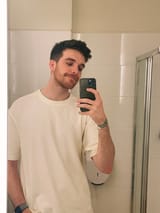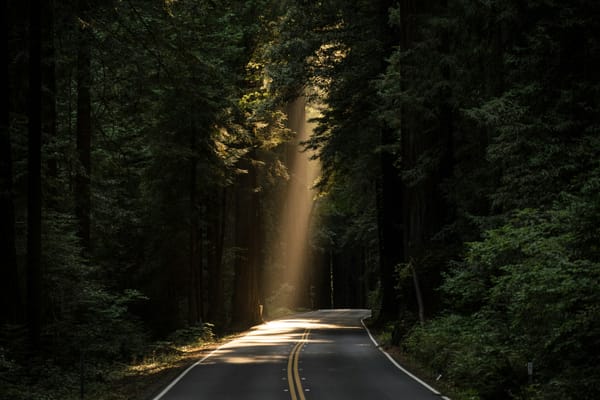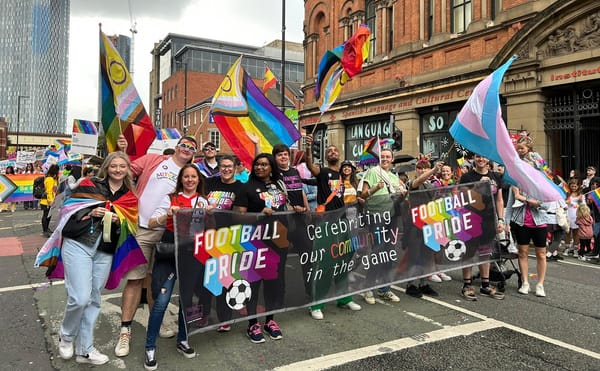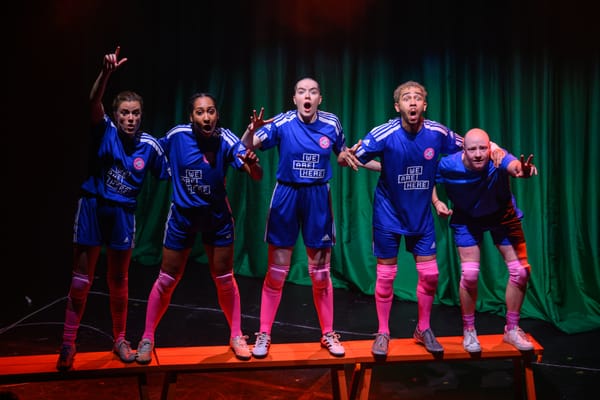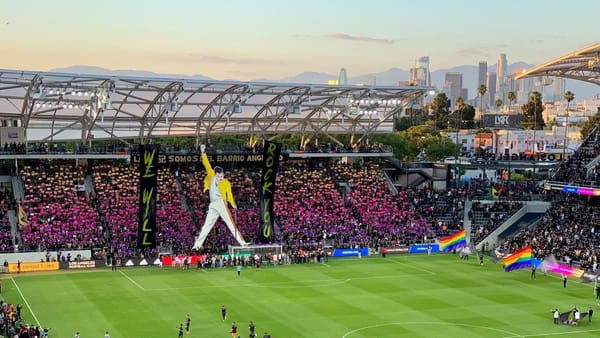Why I'm introducing as many queer people to football as possible
"If we sit back and wait for football to change, we’ll be waiting a long time."
LGBTQ+ fan groups are relatively new to football. But they play a vital role in bridging the gap between the queer community and football. This week, Richard — who chairs QPR’s group, Rainbow Rangers — explains his mission to change football.
By Richard Young
Every football fan remembers their first game. For me that was QPR vs Wimbledon on 19 March 1994. The day after my 9th birthday. A special weekend trip from Derby, where I grew up. Despite being an established Premier League team (QPR finished fifth the season before!), Wikipedia tells me there were only 11,367 other people there that day. But for nine-year-old me, that was the start of a lifelong love of my club and our unique little ground in West London.
I wasn’t aware of my sexuality yet. Despite growing up 130 miles away in a non-QPR supporting household, Loftus Road always felt like home. Finally, I was amongst my own people – free from my Derby County and Manchester United supporting classmates.
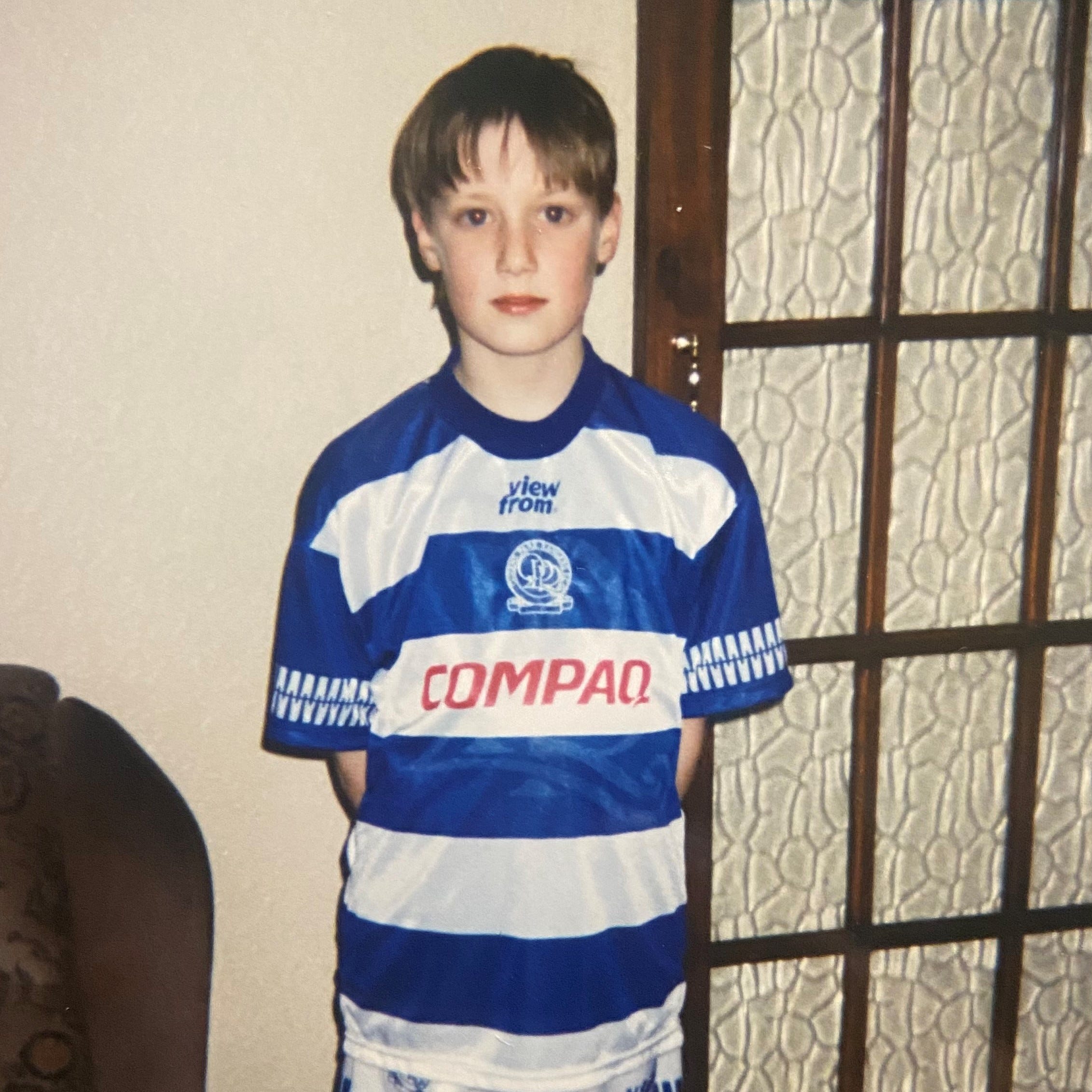
That love only grew over the years, despite my team dropping out of the Premier League and eventually down to League One. The early 2000s proved difficult for QPR, and they also coincided with my own difficult teenage years – trying to balance my Catholic upbringing and my passionate love of football with my newly emerging attraction to guys. I distinctly remember praying for three things every night before bed – for my family to be safe and well, for QPR to win and for me to not be gay – in that order.
My physical distance from Loftus Road and only rare attendance of matches probably delayed the inevitable conflict so many queer people who love football experience – how do I marry these two seemingly incompatible parts of my life?
After a year at university in Leeds (now 194 miles from Loftus Road), I’d given up on the Catholic part of my life, leaving me with one fewer internal conflict to deal with. But it’s in Yorkshire that I remember feeling nervous to attend a QPR game for the first time. Not nervous for the result, or the way we’d play, but for how I’d be perceived and accepted.
That first year of university had been momentous for me in beginning to discover my true self. Accepting my sexuality. Making other queer friends. Feeling safe and free to explore the real me, away from the shackles of church or home or the friends I grew up with. It had also given me the opportunity to start attending many more QPR away games – back in the Championship by now, there were a plethora of games just a short train or bus ride away.
I’d always been a bit of a solo QPR fan. None of my family were Rs, and none of my new found uni friends were into football. And so, I found myself travelling to Sheffield United away. 20 or 21 and the most me I’d ever felt. But with that came an internal conflict – that nervousness I mentioned. What happens if the real me isn’t welcome at football?
Looking back, it seems a little silly, but I’d decided to wear my favourite red jeans to the match that day. Probably the least queer outfit choice I can think of now, but back in the early 2000s I was convinced this was going to out me to the whole stadium. Would the home fans attack me? Would my fellow QPR supporters ridicule me? I kept my head down all game and was relieved to get back to Leeds unscathed.
Obviously, nothing bad happened – everyone was much more concerned with what was happening on the pitch than my skinny Topman jeans – but for the first time at football, I’d felt like maybe I didn’t belong. It was almost as if the more comfortable I became with my queer identity, the less comfortable I became at the football. At a time when there was even less LGBTQ+ representation in sport, and even fewer LGBTQ+ supporters groups, QPR took a back seat in my life for a long time.
Fast forward to 2017 and the formation of QPR’s LGBTQ+ supporters group, Rainbow Rangers. I was only ever a fair-weather member – sending the occasional WhatsApp group message or briefly meeting one or two other members pre-match – but something started to change. For the first time, it started to feel like I belonged. I wasn’t the only queer football fan, and I wasn’t the only person looking for this community.
As this season rolled around, more by chance than out of desire, I found myself as chair of the group. And with that came a great opportunity – not just to belong, but to help build something for others like me.
So, as well as creating a social, supportive group of queer QPR fans, and working closely with the club to ensure Loftus Road is welcoming and accepting to everyone, I set myself one more challenge for the season – introduce as many new LGBTQ+ people to football as possible.
There’s a widely-held perception that more queer people would attend football if football was more welcoming. Which to some extent is true. Men’s football can still be, and often is, hyper “masculine”, loud, aggressive and intimidating. Compare it to the women’s game and the difference is stark. But if we sit back and wait for football to change, we’ll be waiting a long time. As a community, we have a long and successful history of pushing for the equality we deserve. So why should football be any different?
All the talk and energy to make football safe and welcoming for queer people is wasted, if we don’t also find ways to actively bring more queer people into stadiums. So that’s what we’ve started doing. Back in February, to coincide with Football v Homophobia Month of Action, we welcomed 10 guests from LGBTQ football team Leftfooters to our home match against Millwall.
Now you might be forgiven for thinking that people who play for a queer football team will also support a club and regularly attend matches – that was certainly my initial expectation – but you’d be wrong. As well as a long lapsed QPR fan, we welcomed people who were attending their first ever professional game. People who loved football, but didn’t think they’d be welcomed or accepted or comfortable at a professional men’s game. Despite a rather abject performance, and the heavy police presence that any game against Millwall inevitably brings, two of the group joined us for the subsequent midweek game against Sunderland too. Success.
Just last month, in conjunction with the club’s Community Day, we wanted to go one step further and welcomed a group of people who had no previous links to football at all. Step forward Opening Doors – an amazing charity for LGBTQ+ people over 55. Partly tempted by our pre-match social, no doubt, the free tickets were snapped up within 24 hours.
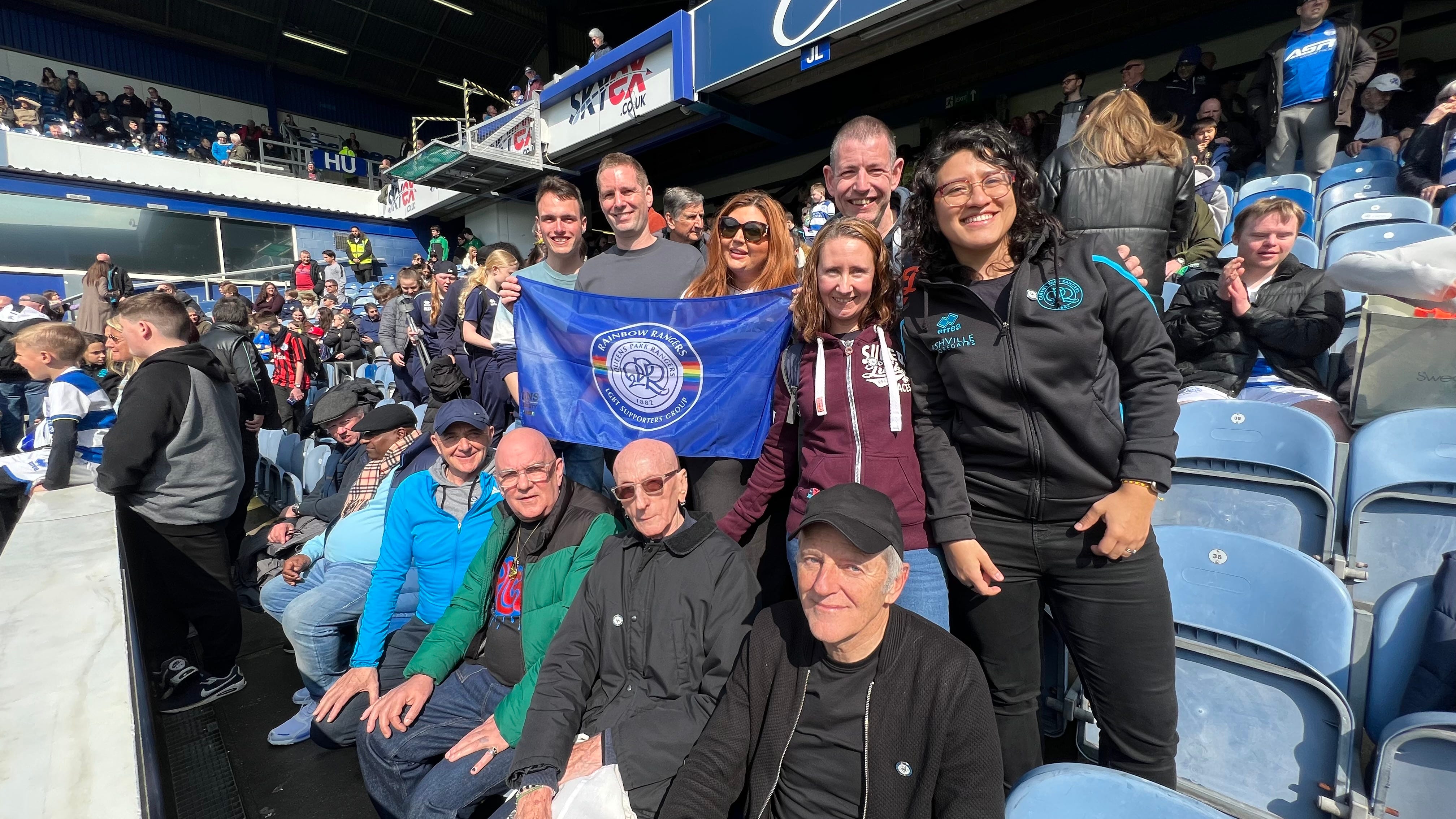
Again, we welcomed someone who had never been to a football match in their life, who thought, “why not?!” when he saw the listing. Someone who, without the safety and community of Rainbow Rangers and the hospitality of QPR, may well have never attended a game in his life. Maybe he’ll never come back. Or maybe he’ll secretly look out for QPR results on a Saturday evening. In either case, he’ll now know that he’s welcome at football. That he can be his true self, and that you’re never too old to attend your first game.
So that’s the commitment I’m making. Not only to do everything I can from within the game to make football welcoming and accepting, but to actively seek out and bring more queer people to matches. Those who already love the game but don’t feel comfortable. Those who’ve never felt like they belong. Those who don’t have the friends to take them. Those who don’t have the money to afford it.
Because the more diverse the fans in the stands are, the more welcoming football will be for everyone.
Thank you for reading. Will you share Richard’s post with a friend?
